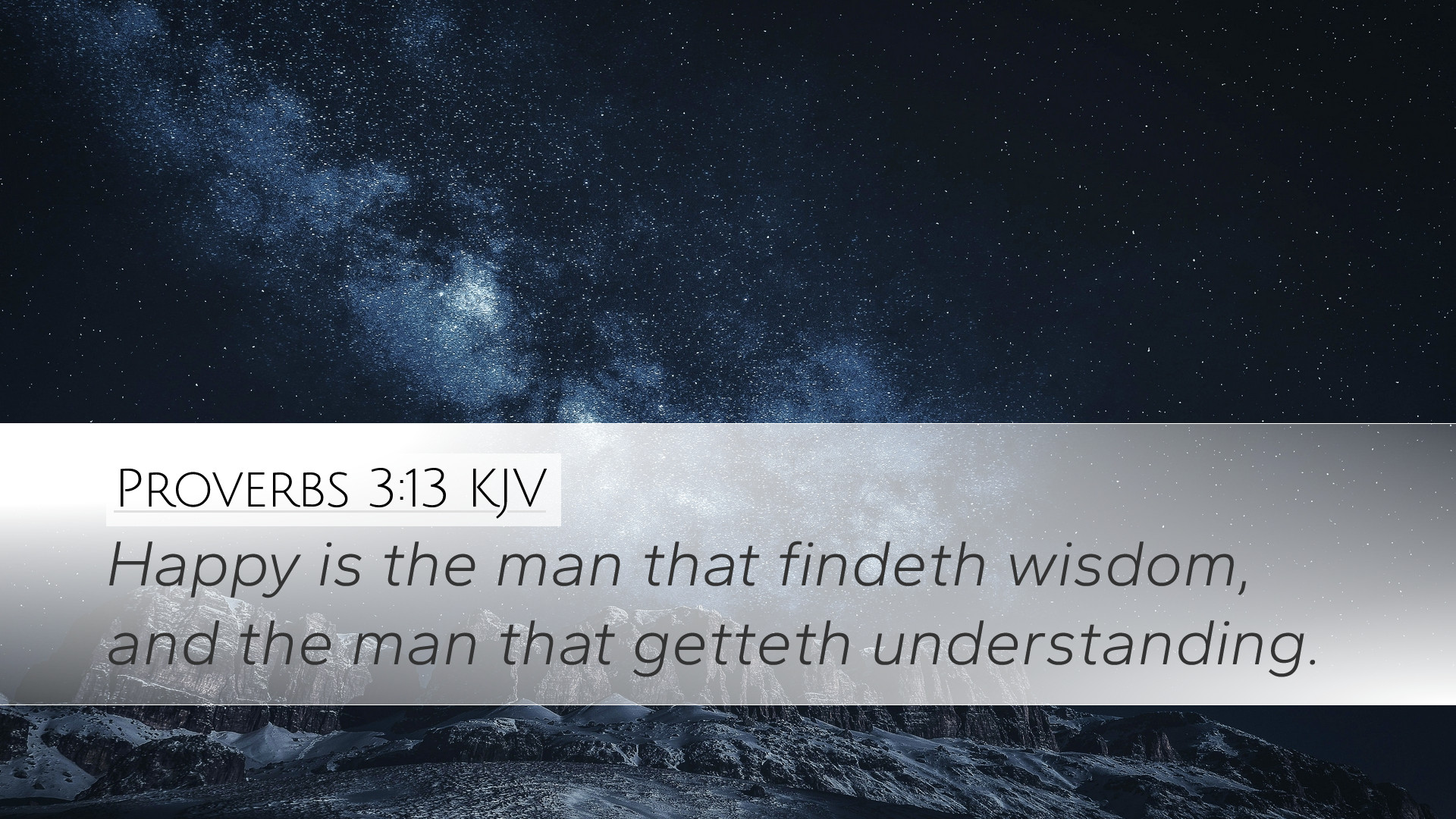Commentary on Proverbs 3:13
Verse: "Happy is the man that findeth wisdom, and the man that getteth understanding."
Introduction
Proverbs 3:13 encapsulates one of the core messages of the Book of Proverbs: the immense value of wisdom and understanding. This short yet profound verse serves as a portal into deeper theological reflections concerning the nature of wisdom, its practical implications, and its ultimate source.
Insights from Commentaries
1. The Nature of Happiness
Matthew Henry emphasizes that the term "happy" here signifies a deep-seated joy derived from spiritual fulfillment. Unlike worldly happiness, which is often transient, this joy is grounded in the possession of wisdom. The word "happy" is significant, as it aligns with Living a life centered around divine principles brings lasting contentment.
2. The Search for Wisdom
Albert Barnes, in his classic commentary, notes that the phrase "findeth wisdom" indicates an active pursuit. Wisdom is not simply handed to an individual; rather, it requires diligence and a heartfelt quest. The use of the word "findeth" implies that wisdom can often be hidden, waiting to be discovered through prayer, study of Scripture, and contemplation.
3. Understanding as a Companion to Wisdom
Adam Clarke expands on the idea that understanding complements wisdom. He asserts that wisdom represents the application of knowledge, whereas understanding grants insight into the complexities of life. A truly wise person, therefore, does not only know what is right but also comprehends the reasons behind it and the implications of those choices.
4. Theological Implications
Theologically, this verse positions wisdom and understanding as divine gifts. Henry notes that they stem from God, which invites us to actively seek a relationship with the Divine. This pursuit underscores a vital principle: true understanding of God’s will is essential for living a life that honors Him.
5. Practical Applications
The verse encourages individuals—pastors, students, and scholars alike—to prioritize the acquisition of wisdom. Barnes suggests that obtaining wisdom leads not only to personal happiness but also equips individuals to guide others. Engaging with the Scriptures, community discussions, and prayer are essential practices to cultivate this pursuit.
Conclusion
Proverbs 3:13 invites reflection on the nature of happiness and the pursuit of wisdom and understanding. It underscores that true happiness is not found in material gain or transient pleasures but in the fulfillment of living a life anchored in wisdom sourced from God. The combined insights from public domain commentaries provide a rich tapestry of understanding that can guide believers in their spiritual journeys.
Summary Points
- Happiness Defined: A deeper joy found in spiritual fulfillment.
- The Pursuit of Wisdom: Wisdom is active and requires diligence.
- Understanding as Essential: Understanding enriches wisdom.
- Divine Gifts: Wisdom and understanding come from God.
- Practice Priority: Engage with Scripture and prayer to cultivate wisdom.


